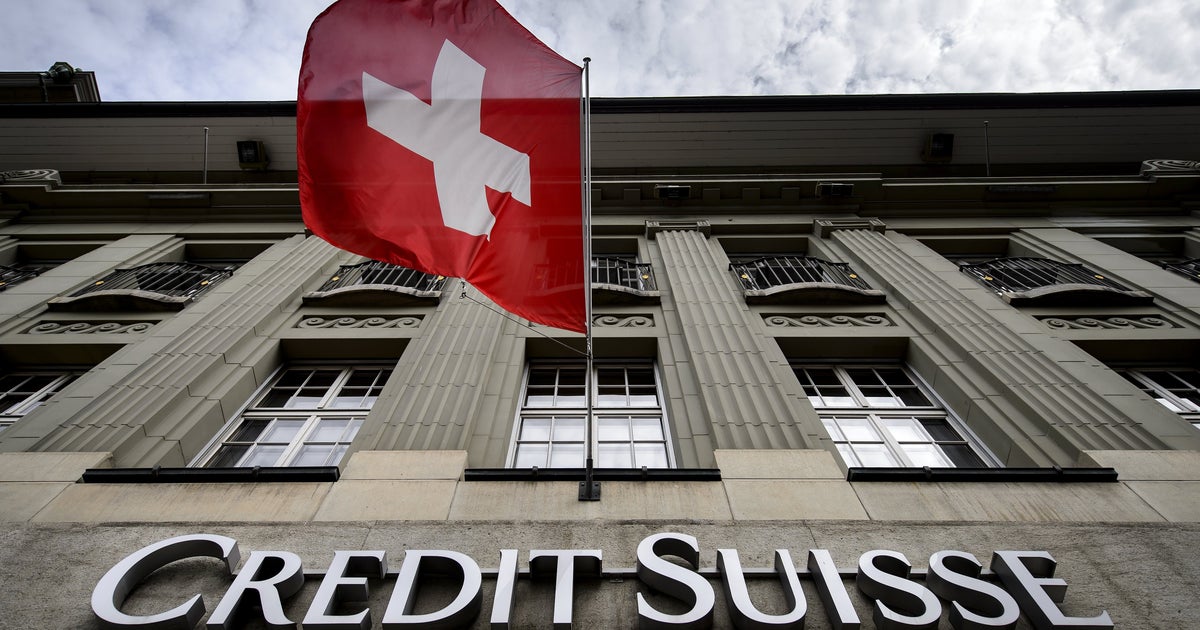
Credit Suisse shares tumbled to an all-time low on Wednesday, stoking fresh jitters over the health of the broader banking sector following the collapse of two U.S. banks.
The Swiss bank’s stock was down 20% as of 2:29 p.m. Eastern time trading at $2 per share. The stock plummeted just hours after Credit Suisse’s top shareholder, Saudi National Bank, ruled out increasing its stake in the bank due to limitations imposed by regulators from the various jurisdictions overseeing its investment.
“If we go above [a] 10% [stake], all new rules kick in whether it be by our regulator or the Swiss regulator or the European regulator,” Saudi National Bank Chairman Ammar Al Khudairy told Bloomberg TV on Wednesday. “We’re not inclined to get into a new regulatory regime.”
The Saudi backer’s decision not to provide more funds comes just one day after Credit Suisse rattled investors by disclosing that it had discovered “material weaknesses” in its 2021 and 2022 financial reports.
“[Credit Suisse] Group’s internal control over financial reporting was not effective as it did not design and maintain an effective risk assessment process to identify and analyze the risk of material misstatements in its financial statements,” the bank said in its annual report, released Tuesday.
Concerns over the accuracy of Credit Suisse’s financial reporting and its relationship with investors came under scrutiny after the meltdowns of Greensill Capital and Archegos Capital Management, which battered the bank in 2021, causing it to lose billions of dollars.
Credit Suisse racked up $8 billion in net losses in 2022, its largest ever annual losses, according to the bank’s filings. Credit Suisse’s wealth management unit also posted roughly $133 billion in net asset outflows for 2022 as customers took their business elsewhere, SEC filings show.
Those financial woes, along with the recent collapse of tech-focused Silicon Valley Bank (SVB) and Signature Bank, likely intensified the market’s reaction to statements Wednesday by the bank’s top investor, said Andrew Kenningham, chief Europe economist with Capital Economics.
“Much bigger concern”
“Credit Suisse has been a slowing moving car crash for years, it seems, but now today’s news of course is happening in the vortex of SVB,” he told investors in a report.
Kenningham described Credit Suisse’s struggles as a “much bigger concern for the global economy” than the health of regional U.S. banks like SVB. The Swiss company, which has a much larger balance sheet than SVB, is categorized by financial regulators as a “global systemically important bank” and is deeply interconnected with financial entities, including subsidiaries in the U.S.
“[T]he problems in Credit Suisse once more raise the question whether this is the beginning of a global crisis or just another ‘idiosyncratic’ case,” he wrote. “Credit Suisse was widely seen as the weakest link among Europe’s large banks, but it is not the only bank which has struggled with weak profitability in recent years.”
As the selloff in Credit Suisse shares fuels concerns about the global banking system, the broader markets have also retreated. The S&P 500 fell 1.2% on Wednesday, while the KBW Bank Index, which measures the performance of 24 national and regional banks, declined 3.4%.
